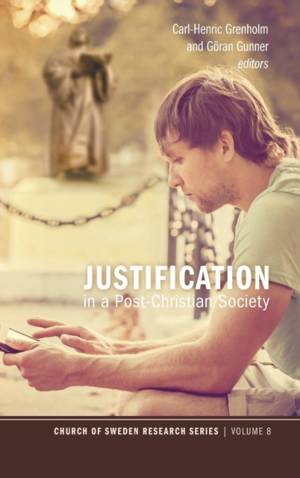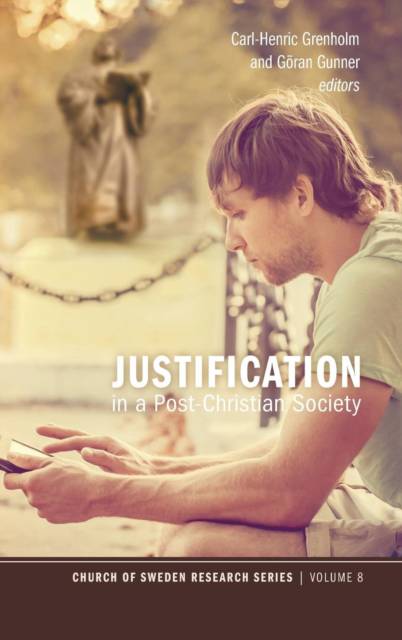
- Afhalen na 1 uur in een winkel met voorraad
- Gratis thuislevering in België vanaf € 30
- Ruim aanbod met 7 miljoen producten
- Afhalen na 1 uur in een winkel met voorraad
- Gratis thuislevering in België vanaf € 30
- Ruim aanbod met 7 miljoen producten
Zoeken
Justification in a Post-Christian Society
€ 74,95
+ 149 punten
Omschrijving
Since the Reformation in the sixteenth century, Lutheran traditions have had a great impact on culture and politics in many societies. At the same time Lutheran churches have impacted personal faith, basic morality, and ethics. Modern society, however, is quite different from the time of the Reformation. How should we evaluate Lutheran tradition in today's Western multicultural and post-Christian society? Is it possible to develop a Lutheran theological position that can be regarded as reasonable in a society that evidences a considerable weakening of the role of Christianity? What are the challenges raised by cultural diversity for a Lutheran theology and ethics? Is it possible to develop a Lutheran identity in a multicultural society, and is there any fruitful Lutheran contribution to the coexistence of different religious and nonreligious traditions in the future?
Specificaties
Betrokkenen
- Uitgeverij:
Inhoud
- Aantal bladzijden:
- 270
- Taal:
- Engels
- Reeks:
- Reeksnummer:
- nr. 8
Eigenschappen
- Productcode (EAN):
- 9781498226912
- Verschijningsdatum:
- 4/11/2014
- Uitvoering:
- Hardcover
- Formaat:
- Genaaid
- Afmetingen:
- 152 mm x 229 mm
- Gewicht:
- 530 g

Alleen bij Standaard Boekhandel
+ 149 punten op je klantenkaart van Standaard Boekhandel
Beoordelingen
We publiceren alleen reviews die voldoen aan de voorwaarden voor reviews. Bekijk onze voorwaarden voor reviews.







